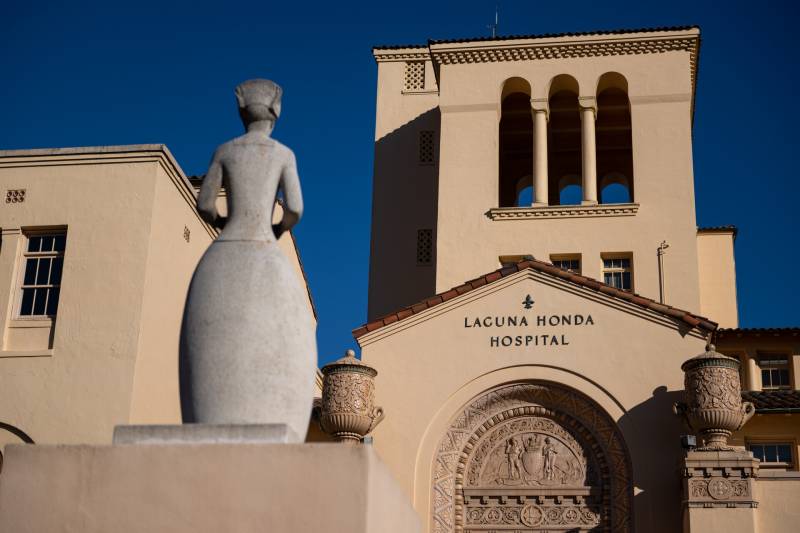Hospital officials said they are no longer preparing for forced transfers to resume on Sept. 19, now that Laguna Honda is certified with Medi-Cal.
“We have no indication that anyone is expecting us to resume transfers on the 19th, nor are we making preparations,” Pickens said.
Only after Laguna Honda is readmitted back into Medicare will it resume admissions for new residents again, hospital officials said Tuesday. Laguna Honda is licensed for more than 700 residents but the total number of patients living there has dropped to nearly 500 while admissions have been frozen.
The hospital is rapidly trying to hire up in a few key areas before it can welcome new patients, too. Roles that need to be filled include nurses, food service workers and activity therapists.
Patients who were transferred after the hospital was decertified will receive preference to come back, if they still require skilled nursing and wish to return, Pickens said Tuesday.
At the meeting on Tuesday, several community members expressed concern and frustration with the slow process and how many San Francisco residents have had to go out of county for skilled nursing in the meantime.
“People are suffering having to go out of the county for hospitals,” said Teresa Palmer, a former physician at Laguna Honda Hospital and organizer with the advocacy group the Gray Panthers. “This is really a dangerous situation.”
It’s also unclear if the hospital will reopen all of its 700-plus beds after it does regain certification with Medicare.
Due to a change in federal regulations around room and board at nursing facilities meant to improve personal space and safety, Laguna Honda had to take about 120 of its beds that were in triple rooms offline.
The hospital must apply for a waiver in order to retain those beds, but Pickens said they won’t apply for that waiver until after the hospital meets Medicare standards.
“We recognize the importance of Laguna Honda in San Francisco,” Pickens said. “We take our responsibility to be open to admissions very seriously and are committed to doing so as soon as possible.”

